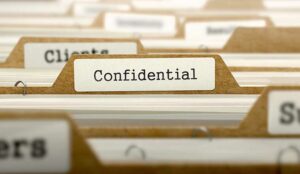“I am working on a quality project, I held some workshops with the frontline staff and one of the groups raised this issue of compliance in the recording of the calls. Some of them said if the recording is done just with the purpose of supporting the agents skills and training then we do not require training. However, if we are also recording with a purpose of resolving customer disputes in that case the customer can sue us for breaking the privacy act.”
Answer 1:
Recording and monitoring telephone calls or e-mails
We always point our customers to the Ofcom website, the guide lines they lay out are as follows: –
Recording and monitoring telephone calls or e-mail
A general overview of interception, recording and monitoring of communications
The interception, recording and monitoring of telephone calls is governed by a number of different pieces of UK legislation. The requirements of all relevant legislation must be complied with. The main ones are:
Regulation of Investigatory Powers Act 2000 (“RIPA”)
Telecommunications (Lawful Business Practice)(Interception of Communications) Regulations 2000 (“LBP Regulations”)
Data Protection Act 1998
Telecommunications (Data Protection and Privacy) Regulations 1999
Human Rights Act 1998
It is not possible to provide comprehensive detail of that legislation here. Any person considering interception, recording or monitoring of telephone calls or e-mails is strongly advised to seek his/her own independent legal advice and should not seek to rely on the general information provided below. It should be borne in mind that criminal offences and civil actions may occur when the relevant legislation is not complied with. Accordingly, Oftel accepts no liability for reliance by any person on the following information.
Can I record telephone conversations on my home phone?
Yes. The relevant law, RIPA, does not prohibit individuals from recording their own communications provided that the recording is for their own use. Recording or monitoring are only prohibited where some of the contents of the communication – which can be a phone conversation or an e-mail – are made available to a third party, ie someone who was neither the caller or sender nor the intended recipient of the original communication. For further information see the Home Office website where RIPA is posted.
Do I have to let people know that I intend to record their telephone conversations with me?
No, provided you are not intending to make the contents of the communication available to a third party. If you are you will need the consent of the person you are recording.
Can a business or other organisation record or monitor my phone calls or e-mail correspondence with them?
Yes they can, but only in a limited set of circumstances relevant for that business which have been defined by the LBP Regulations. The main ones are:
to provide evidence of a business transaction
to ensure that a business complies with regulatory procedures
to see that quality standards or targets are being met in the interests of national security
to prevent or detect crime to investigate the unauthorised use of a telecom system
to secure the effective operation of the telecom system.
In addition, businesses can monitor, but not record, phone calls or e-mails that have been received to see whether they are relevant to the business (ie open an employee’s voicemail or mailbox systems while they are away to see if there are any business communications stored there). For further information see the DTI website where the LBP Regulations are posted.
However any interception of employees’ communications must be proportionate and in accordance with Data Protection principles. The Information Commissioner has published a Data Protection Code on “Monitoring at Work” available on its website here. The Code is designed to help employers comply with the legal requirements of Data Protection Act 1988. Any enforcement action would be based on a failure to meet the requirements of the act – however relevant parts of the Code are likely to be cited in connection with any enforcement action relating to the processing of personal information in the employment context. Accordingly this Code of Practice and the Data Protection Act must also be considered by any business before it intercepts employees’ communications.
Do businesses have to tell me if they are going to record or monitor my phone calls or e-mails?
No. as long as the recording or monitoring is done for one of the above purposes the only obligation on businesses is to inform their own employees. If businesses want to record for any other purpose, such as market research, they will have to obtain your consent.
What do I do if my calls have been recorded unlawfully?
Under RIPA it is a tort to record or monitor a communication unlawfully. This means that if you think you have suffered from unlawful interception of your phone calls or e-mails you have the right to seek redress by taking civil action against the offender in the courts.
(If you have been following the steps to contact Oftel and this FAQ has not helped then proceed to Step 3)
Thanks to Carl Nancollas for this answer.
Click here for our Data Protection Act and Call Recording Laws in the UK
Author: Jo Robinson
Published On: 30th Jun 2008 - Last modified: 12th Apr 2022
Read more about - Archived Content





























Are we being compliant if we include ‘your calls maybe recorded for training & security purposes’ on letters /external e mails to business contacts, rather than say it on every outbound call?
Thanks
Sheila,
In short, yes!
You only actually *need* to inform once, if it’s on a document it’s fine. The exception would be OB cold or Inbound first contact. (That’s the FSA side anyway).
Regards